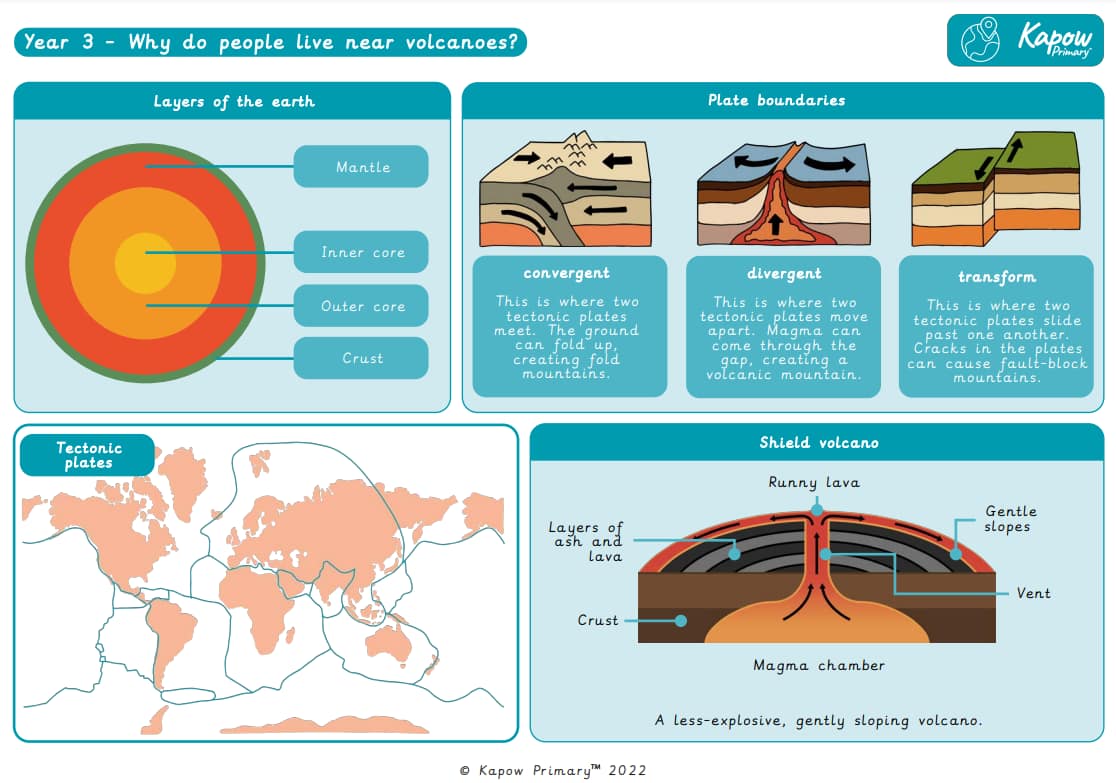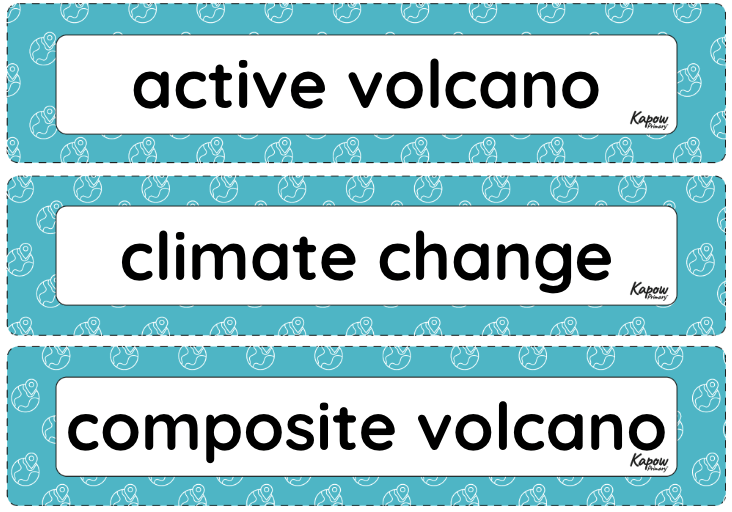Y3/4 (A): Why do people live near volcanoes?
Based on the National curriculum for Geography in KS2, use this unit hub to inform your medium-term plan.
Unit outcomes
Pupils who are secure will be able to:
- Name all four layers of the Earth in the correct order, stating one fact about each layer.
- Explain one or more ways a mountain can be formed.
- Give a correct example of a mountain range and its continent.
- Describe a tectonic plate and know that mountains occur along plate boundaries.
- Correctly label the features of shield and composite volcanoes and explain how they form.
- Name three ways in which volcanoes can be classified.
- Describe how volcanoes form at tectonic plate boundaries.
- Explain a mix of negative and positive consequences of living near a volcano.
- State whether they would or would not want to live near a volcano.
- State that an earthquake is caused when two plate boundaries move and shake the ground.
- Explain that earthquakes happen along plate boundaries.
- List some negative effects that an earthquake can have on a community.
- Observe, digitally record and map different rocks using a symbol on a map.
- Identify rock types and their origins based on collected data.
Lesson 6 involves fieldwork on the school grounds. It is important to risk-assess the proposed route taking into account any relevant school risk assessment policies and procedures. Refer to the Before the lesson section in Lesson 6 to prepare for this lesson. Please be aware this lesson may take longer than 1 hour.
Lessons 3 and 6 require a device (one per pair).
Suggested prior learning
Y1/2 (B): What is it like to live in Shanghai?
Get startedLessons
Y3/4 (A): Lesson 1: How is the Earth constructed?
- To name and describe the layers of the Earth.
Y3/4 (A): Lesson 2: Where are mountains found?
- To explain how and where mountains are formed.
Y3/4 (A): Lesson 3: Why and where do we get volcanoes?
- To explain why volcanoes happen and where they occur.
Y3/4 (A): Lesson 4: What are the effects of a volcanic eruption?
- To recognise the negative and positive effects of living near a volcano.
Y3/4 (A): Lesson 5: What are earthquakes and where do we get them?
- To explain what earthquakes are and where they occur.
Y3/4 (A): Lesson 6: Where have the rocks around school come from?
- To observe and record the location of rocks around the school grounds and discuss findings.
Related content
Unit resources

Knowledge organiser: Geography – Y3 Why do people live near volcanoes?
Aimed at pupils, a single page which gives key facts and definitions from the unit Why do people live near…

Vocabulary display: Why do people live near volcanoes?
A display version of the vocabulary from the unit 'Why do people live near volcanoes?'
Cross-curricular opportunities
Science: States of matter, rocks, living things and their habitats, forces
English: Spoken language, reading
Art and design
Computing
Physical education

